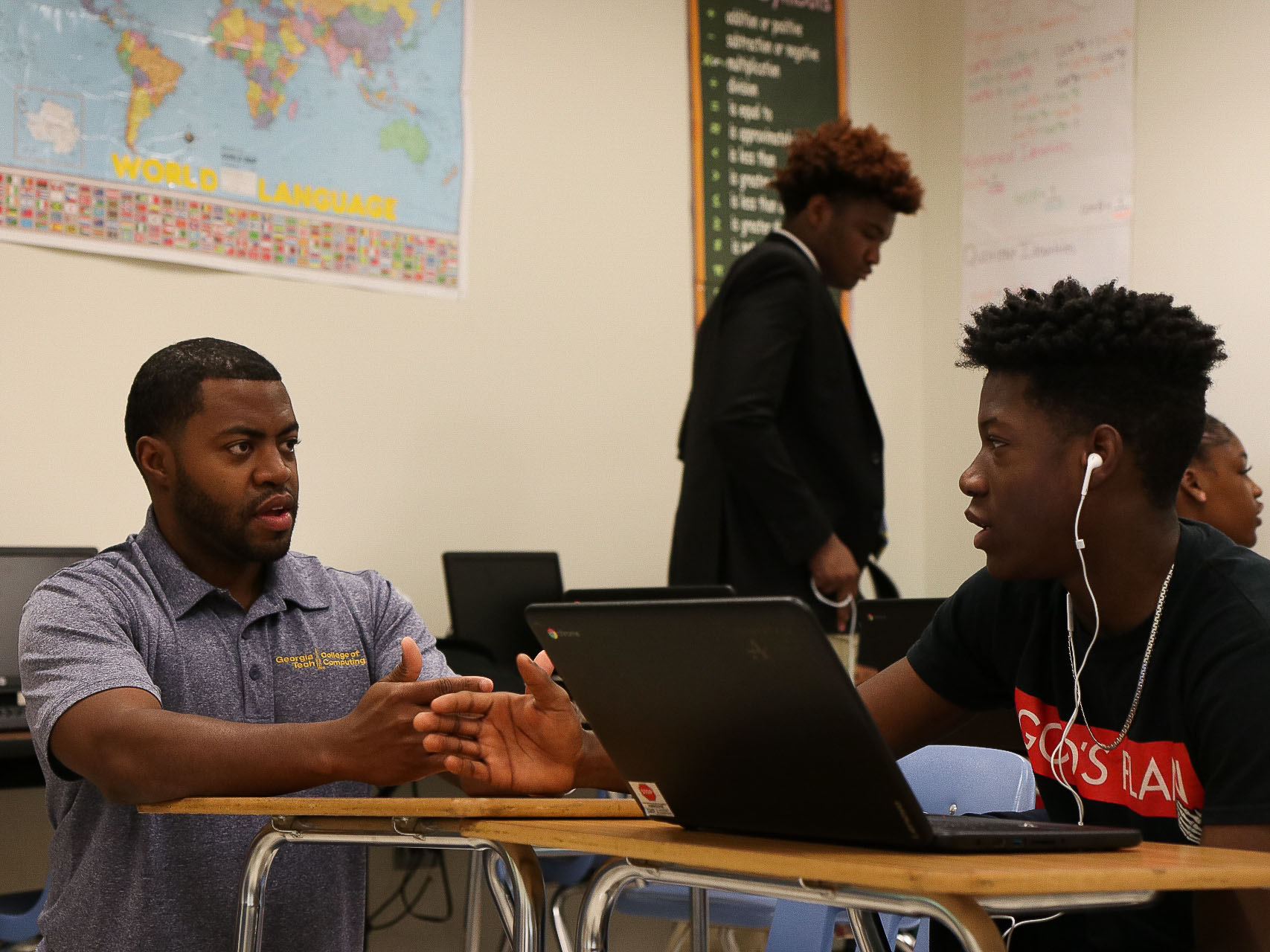
Overcoming Obstacles Outside of the Classroom
It can be easy to write off the students that are consistently tardy or leave their homework incomplete. It’s also easy to forget that every person is fighting their own battles and that there is often more to the story, especially in marginalized communities.
Unfortunately for many students in low-income communities, there are often everyday hurdles that make getting to school at all an achievement. By the time they reach high school, a student may be completely responsible for getting themselves ready for the day and arriving at school on time. Parents are often times not at home or asleep when their child has to get ready for school and catch the bus. Parents mistakenly assume that teens have reached the age where they can get through this routine with no support or supervision, but that is often untrue.
One misstep in the morning can cause problems that last throughout the day. Just from missing the bus, students tend to forget their backpacks, walk a long distance, miss breakfast, miss initial instruction and on top of all that – get immediately admonished upon entering the school building. Why are you late? Where are you coming from? You need to get here on time! Go to bed earlier! At this point, the challenge becomes how to turn the day around. Many students can’t do it; oftentimes a missed bus means staying home for the day.
Another reason students miss school entirely is that they have been assigned the role of babysitter. High school age students tend to be the eldest sibling. If a younger sibling is sick, the student is often tasked with staying home to care for their sibling so that the parents can go to work and earn a much-needed income.
There are also situations where the high school student is responsible for getting younger siblings to their school bus on time. These students are consistently late because the elementary school bus comes well after the bell has rung for the first period in high school. This type of babysitting arrangement can also cause students to leave school early, with or without permission, to make sure they are home when younger siblings arrive.
Aside from caring for others or lack of support, some students have the responsibility of being the breadwinner in their families. This is a huge responsibility and can cause enormous amounts of stress. Working late at night leaves little time to prepare for the following day or complete their homework.
The fatigue coupled with not being prepared decreases motivation tremendously. It simply becomes easier to stay home. This dynamic is a confusing one for the student, however, because after all he/she is providing financial stability for their family. It’s easy to prioritize money over education when the money is needed right now. With this extra burden of responsibility, it is difficult for a teenager to see how education will pay off for them in the long-run.
All of these factors are problematic but recurrent within low-income, marginalized communities. Students and parents are unaware of how these extra responsibilities can negatively impact their academic performance and social well-being.
Educators must be mindful of the tardy student, the one with excessive absenteeism, or those who leave before the end of the school day. As part of the design process of the student development life cycle (SDLC), accommodations and preparations for receiving students with these factors must be considered. My question to you is, “what accommodations, considerations, or preparations must we implement to address these factors?”



